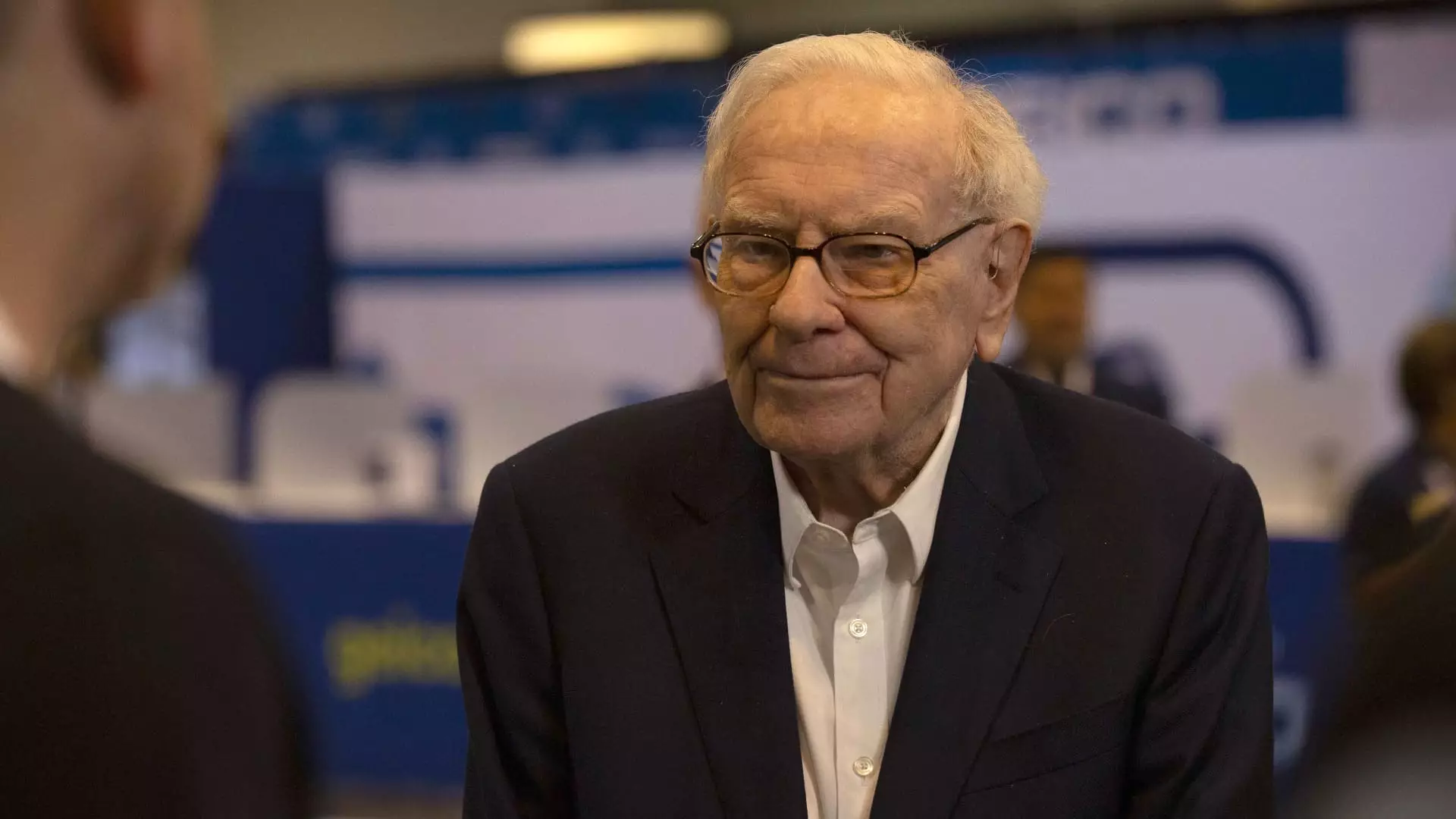The recent speculation surrounding Berkshire Hathaway’s potential disposal of its real estate brokerage unit, HomeServices of America, has stirred the pot among investors and analysts alike. If this deal materializes, it may not be just another corporate transaction; it symbolizes a vital turning point for the venerable investor Warren Buffett. Once regarded as the epitome of a patient, buy-and-hold investor, Buffett’s rumored retreat from an industry in turmoil raises eyebrows and questions about the long-term viability of real estate investments.
Buffett’s history as an investor in various sectors showcased his confidence in businesses that he believes possess enduring competitive advantages. However, the palpable shifts in the real estate market pose a serious challenge to that philosophy. The slowing sales, coupled with an alarming inventory crunch and inflated prices, may be pointing to a worrisome reality: Buffett may be recognizing an industry that no longer aligns with his strategic vision. The Wall Street Journal reported that Compass is in talks to acquire HomeServices, a development that, despite denials from CEO Gino Blefari, suggests deep-seated concerns within the Berkshire ranks.
Signs of Industry Stagnation
The performance numbers of HomeServices are telling. After generating a relatively modest $4.4 billion in revenue last year, the company experienced a staggering $113 million loss—an abrupt reversal of the previous year’s profits. Is this indicative of a broader malaise gripping the real estate sector? HomeServices is a mere drop in the bucket of Berkshire Hathaway’s diverse portfolio, which makes this decline all the more concerning. The larger context reveals that real estate, once a dependable asset class, may no longer reap the rewards it once did.
Buffett’s initial investment in HomeServices, acquired during a 1999 deal involving MidAmerican Energy, seemed to bolster his presence in an industry that appeared, at the time, unassailable. Fast-forward to today, and the increasing litigation costs—like the recent $250 million settlement pertaining to inflated brokerage commissions—have added layers of complexity to an already fragile ecosystem. Legal liabilities, slow sales, and a lack of available homes for buyers form a trifecta of burdens that might compel Buffett to rethink his commitment to this sector.
The Digital Disruption Dilemma
Buffett’s eventual divestment from the newspaper industry serves as a harbinger of what might come next. The same technological disruption that decimated newspapers now threatens to upend real estate brokerage firms, which have historically relied on traditional sales models. The emergence of online platforms that facilitate direct transactions has the potential to undermine the industry’s pricing structures—structures that, for decades, have fueled profits.
At Berkshire’s annual meeting in 2009, Buffett articulated a fundamental truth about investment: if the competitive advantage disappears, it’s often time to sell. Could he be confronting a similar crisis of confidence about real estate? The soaring home prices and rising mortgage rates—factors exacerbating buyer reluctance—portend a market that is ripe for disruption. Consequently, renowned real estate moguls may soon find that their grasp on the market is slipping.
Implications for Investors
For center-right investors who view real estate as a stable asset class, Buffett’s wavering stance could serve as a wake-up call. Are we interpreting his potential exit as static or as a warning? His surrender to instability in a sector that once seemed fruitful raises intriguing questions. Are other investors seeing the writing on the wall? In a time when the housing market is brimming with uncertainty, maintaining unwavering faith in real estate could be an unwise posture.
Moreover, the ripple effects of a Buffett withdrawal could extend beyond the immediate market. His reputation as an astute investor lends weight to any signals of doubt, potentially catalyzing a broader reevaluation of the real estate narrative among investors. Those with a penchant for risk may view this as an opportunity, but the risk-averse must reconsider before diving into this murky pool.
As we stand on the precipice of change in the real estate landscape, one thing is abundantly clear: Warren Buffett’s evolving posture is not just a personal decision, but a potential harbinger of a looming systemic shift that cannot be ignored. In this turbulent time, vigilance and adaptability will be paramount for all investors.


Leave a Reply